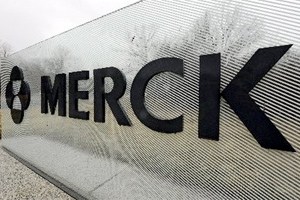 Merck & Co has pledged to press on with a large-scale trial of its cholesterol-lowering drug candidate anacetrapib, despite serial failures by other drugs in the same class.
Merck & Co has pledged to press on with a large-scale trial of its cholesterol-lowering drug candidate anacetrapib, despite serial failures by other drugs in the same class.
Based on an analysis of data by an independent monitoring committee, Merck said it intends to continue the 30,000-patient REVEAL study of anacetrapib, with no changes, keeping it on course for completion in January 2017.
Anacetrapib is a drug in the CETP inhibitor class designed to increase levels of high-density lipoprotein (HDL) cholesterol – which is often described as ‘good’ cholesterol, with a protective cardiovascular effect.
That hypothesis is not proven however and some studies have cast doubt over the validity of raising HDL cholesterol as a means of preventing cardiovascular disease.
Other CETP inhibitors – including Eli Lilly’s evacetrapib, Roche’s dalcetrapib and Pfizer’s torcetrapib – have all failed in late-stage testing – and analysts have suggested that Merck’s commitment to anacetrapib is an expensive gamble, with some estimating the cost of REVEAL at $500m.
Merck’s drug also seems to have the ability to lower low-density lipoprotein (LDL) or ‘bad’ cholesterol, however, and this effect may be enough to show a clinical benefit in REVEAL.
Even if that is the case it remains to be seen where anacetrapib will fit in with the changing cholesterol market now that highly-potent PCSK9 inhibitors from Amgen and Sanofi/Regeneron have reached the market.
After the failure of evacetrapib Merck scheduled a futility analysis for its study – which has clearly now been passed. From now however there will be no further assessments of the data until the trial comes to an end in 2017.
All that aside, Merck is not alone in its optimism about the CETP inhibitor class. Amgen recently bought its way into the category via the acquisition of Dezima Pharma, which included a CETP inhibitor – TA-8995 – that has shown promise in a phase II trial and is licensed from Takeda.
Meanwhile, Bristol-Myers Squibb (BMS) also has an active programme via its partnership with Simcere that focuses on CETP inhibitor candidate BMS-795311.




